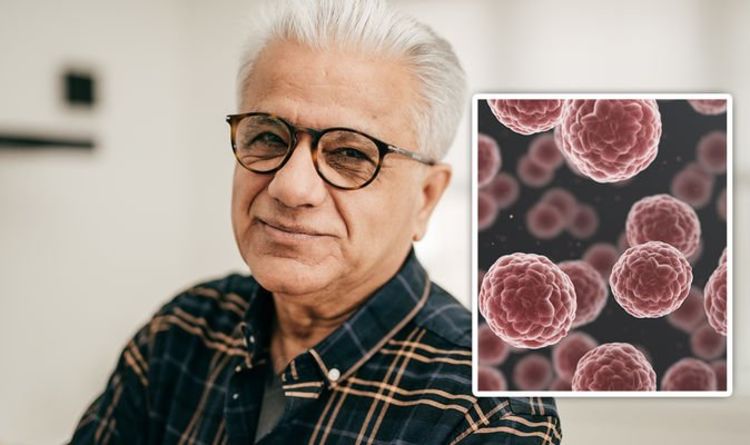Dr Chris discusses CT scans detecting lung cancer
We use your sign-up to provide content in ways you’ve consented to and to improve our understanding of you. This may include adverts from us and 3rd parties based on our understanding. You can unsubscribe at any time. More info
When it comes to lung cancer – with the number one cause attributed to smoking – there can be warning signs once the condition develops. One of the “main symptoms” of a growing tumour in the lung is a recurrent chest infection, certified the NHS. The symptoms of a chest infection include:
- A chesty cough – you may cough up green or yellow mucus
- Wheezing and shortness of breath
- Chest pain or discomfort
- A high temperature
- A headache
- Aching muscles
- Tiredness.
While the symptoms of a chest infection might resolve themselves within 10 days, recurrent chest infections should be notified to your doctor.
Another recurrent issue that may be because of cancer is a recurring cough.
Any cough that does not go away after three weeks needs to be investigated by a medical professional.
Lung cancer may also lead to:
- Coughing up blood
- An ache or pain when breathing or coughing
- Persistent breathlessness
- Persistent tiredness or lack of energy
- Loss of appetite or unexplained weight loss.
READ MORE: Visceral fat – The warm drink that reduces harmful fat ‘significantly’ in ‘weeks’

There are other possible indications of lung cancer that people need to be aware of.
For instance, if the ends of a person’s fingers become larger and curved, this needs to be investigated.
Difficulties or pain while swallowing could also be a sign.
Other symptoms might include:
- Wheezing
- A hoarse voice
- Swelling of your face or neck
- Persistent chest or shoulder pain.
“You should see a GP if you have these symptoms,” the NHS recommended.
The most common form of lung cancer is known as non-small-cell lung cancer, accounting for 87 percent of cases.
This type of lung cancer can be divided into three categories:
- Squamous cell carcinoma
- Adenocarcinoma
- Large-cell carcinoma.
Then there’s small-cell lung cancer that is less common, but can spread more quickly.

“The type of lung cancer you have determines which treatments are recommended,” the NHS elaborated.
In the earliest of stages, where the cancerous cells are confined to a small area, surgery is the best option.
If, however, surgery is unsuitable, radiotherapy might be suggested instead.
When the cancer has spread, chemotherapy is usually recommended.

The outlook for lung cancer “is not as good” as many other types of cancer.
This is because symptoms usually become noticeable when the cancer has spread through the lungs.
“About one in three people with the condition live for at least one year after they’re diagnosed,” the national health service pointed out.
“And about one in 20 people live at least 10 years.”
Source: Read Full Article
